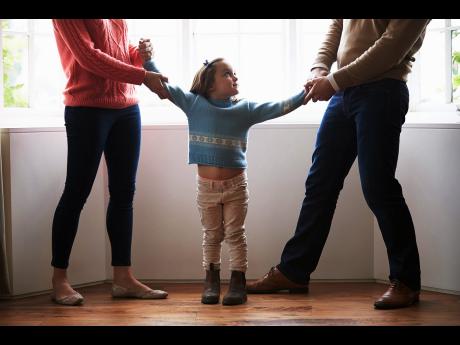My child only wants her dad
After enduring swollen feet, and being too fat to fit in their clothes, mothers expect their children to show them endless love and devotion. It may come as a surprise, but mothers do get a little heartbroken when their children only want their fathers to pour their milk, tuck them in, and make their 'boo-boos' feel better.
Being a daddy's girl once myself, I know that girls love to be adored, cherished and accepted by their fathers. A father is a girl's very first prince charming and as we grow, our self-concept as a female and our self-worth as a young woman are mainly shaped through the relationship we have with our fathers.
This did not mean I loved my mother less or did not appreciate her, but it meant that with dad, everything felt better.
As an adult, I hear my mother talk about how I was with my dad. This shows that she was indeed a little jealous that I did not latch on to her as much as I did my dad. With this discovery, Outlook got mothers to open up about how they feel when their children seem to favour their fathers.
"When I had my first daughter, I was filled with so much pride and joy that I didn't want her to leave my side. But after seeing how much attached she was to her father, I was amazed. It wasn't until she got a little older and realised she wanted to go everywhere with her dad and preferred her dad to take her to school and out for walks, that I started to feel a little teary-eyed.
Of course, I didn't make it obvious that I felt bad, but as she got older, her relationship with her father got stronger and she was always ready to defend him and speak on his behalf. I was happy that she had a bond with her dad but deep down inside, I wanted the same bond. Now that she is an adult, we have a great relationship. I believe that as a young girl, she drew to her dad because he played the 'good guy'. He bought her first phone and got her nearly everything she wanted."
- Veronique Trooper*, mother of three
"Growing up, I would always hear them say daughters are for the fathers and the sons are for the mothers. That didn't bother me, as I maintained a healthy relationship with both parents and the bond deepened after giving birth to my daughter almost five years ago.
"Earlier this summer, while I enjoyed quality time with my newborn son, I overheard my daughter telling her father he is the best ever because he is always taking her out, teaching her things and buying her new things. As awesome as such news would be to him, it slightly broke my heart. Why? Because it felt as though I had began losing my daughter; the child I gave birth to was slowly letting go and latching on to her father like the old saying said she would.
"It took some time and conversation with my husband to appreciate her independence and choice. I had to learn how to deal with her opinions and respect them, and she learnt how to show how much she appreciated me and not to compare parents."
- Yanique Bolton*, mother of two
"When my daughter started walking at nine months, her daddy obsession became clear. She'd make a beeline for her father whenever he was around. For her, the daddy phase meant she only wanted her dad to bring her food to the table, she cried if he wasn't the one to strap her into her car seat, and she insisted that only he put her to bed.
"The final straw for me came when she started calling her father 'Mama' and referred to me as 'Dada', a phase that continued through her toddler years. Every time she called me Dada, it was like a little punch in the stomach. She wasn't being cute, she was saying, 'Mama is the one I want to be around and Dada is the other person, and you're Dada'. It was a huge feeling of rejection and I felt like she did not want to have me as her mother; but as she got older, I learnt that it's not favouritism but a phase I think most girls go through.
Eventually, as she got older, she started to draw towards me and transition into mommy's little angel.
- Anna-Kay Griffin*, mother of one
* Names changed to protect identity.

